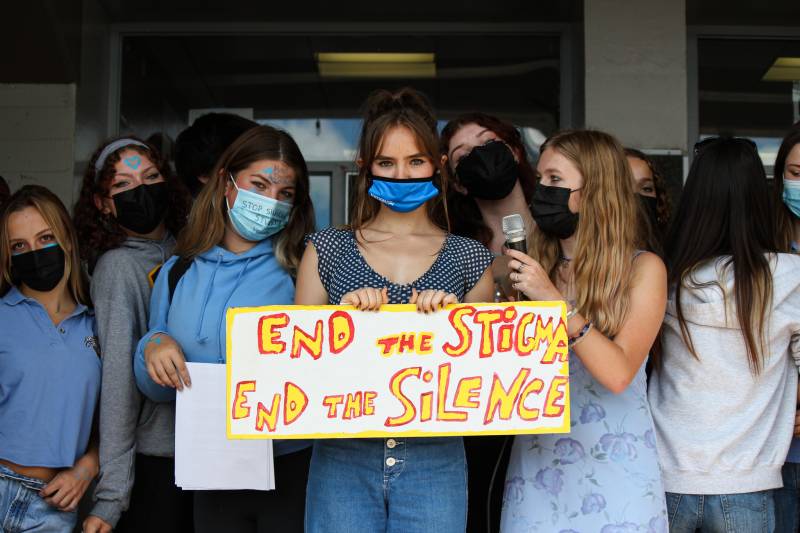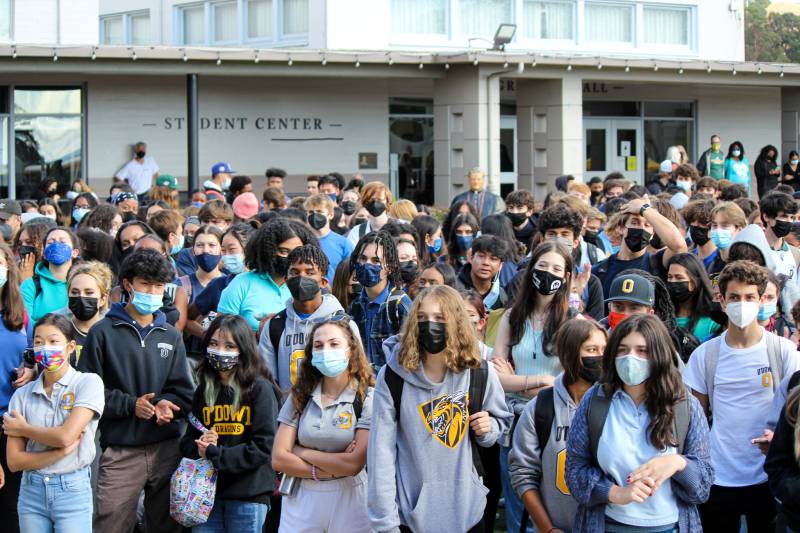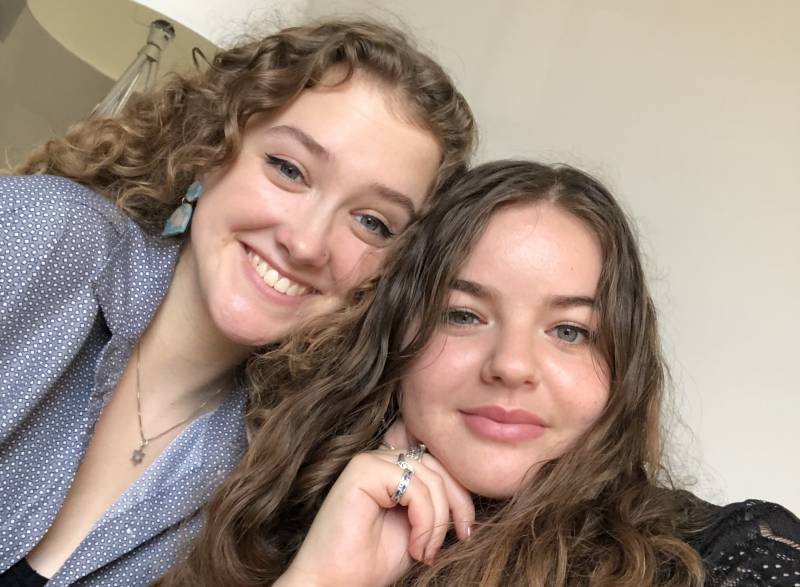Content warning: This story contains references to rape and sexual assault.
Now that students are back in the classroom, they’re renewing efforts to push administrators to address sexual harassment and assault on campus. Students across Northern California are on the march to pressure administrators to address sexual assaults, and there have been at least nine walkouts organized across the region in just the last few weeks alone.
At some schools in the Bay Area, like Bishop O’Dowd High School in Oakland, students organizing around these issues is new, and students are laying the groundwork for changes they expect could take years. In other districts, like the Berkeley Unified School District, there is a long history of student activism around changing what they call a rape culture on campus. Palo Alto Unified students are asking for more comprehensive consent education in high school and education on respecting boundaries as early as kindergarten.
Oakland Catholic school students walk out
Aiming to bring discussions of harassment and assault out into the open, high school seniors Kayla Goodin and Olivia Bruhmuller organized recent walkouts at Bishop O’Dowd High School in Oakland. Students said staff at the Catholic college preparatory high school encourages students to advocate for themselves and social justice issues, but students speaking up about sexual misconduct is still new.
“Definitely being a Catholic school, there’s a historic culture of all these things are being swept under the rug almost and kind of hidden and not really talked about. So we’re trying to acknowledge that and battle it,” Bruhmuller said.



